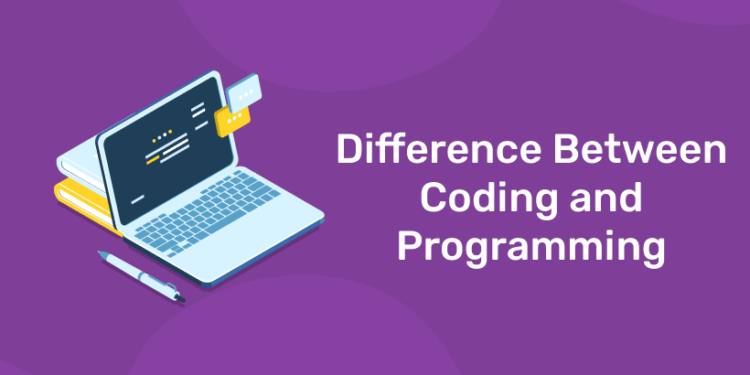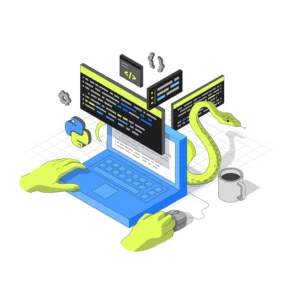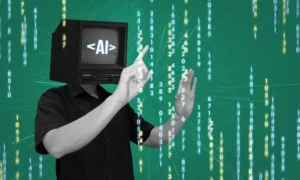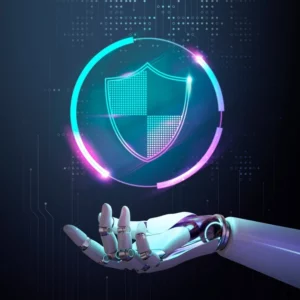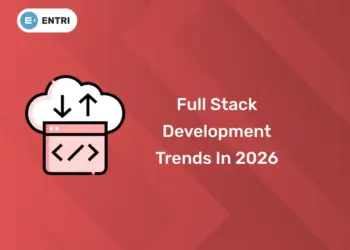Table of Contents
Key Takeaways:
- Coding is writing and debugging code to create functional software components, focusing on syntax and implementation of specific instructions.
- Programming covers the full software creation process, from problem-solving and design to testing and optimization.
- Coding usually deals with smaller, well-defined tasks, while programming involves strategic planning and system architecture design.
- Both roles require different mindsets: coders focus on execution; programmers focus on system design and project management.
- Entri’s AI-integrated coding courses and dedicated placement cell provide learners with cutting-edge skills and career support to excel as coders or programmers.
Introduction: Why Knowing The Difference Matters
The distinction between coding and programming is often clouded by popular usage, with many beginners assuming they are interchangeable. Yet, in any software development project, the difference profoundly shapes how tasks are approached and the types of problems solved. Coding is the act of writing instructions in a language computers understand—think Python, JavaScript, or Java—using the proper syntax and structure. This process translates logical requirements into executable commands, turning ideas into working software pieces. It’s about accurate implementation, whether through a simple text editor or a more advanced interface, producing functional code snippets and automation scripts that fulfill specific roles.
Programming, meanwhile, is the umbrella discipline that begins long before a single line of code is written and continues well after. Programmers start with problem-solving and conceptualization, moving through algorithm design, architecture planning, debugging, optimization, and project management. The programmer’s work involves strategic thinking, collaboration, and choosing the right tools—like debuggers, modeling frameworks, and document review systems—to bring fully functional applications or systems to life. Ultimately, programming is the foundation that ensures code is not just operational but reliable, scalable, and ready to serve real users.
What Is Programming?—Scope, Skills, and Outcomes
1: Which of the following data structures allows elements to be added and removed in a Last-In, First-Out (LIFO) order?
-
Programming encompasses solving problems, conceiving algorithms, planning architecture, debugging, optimizing, and managing projects.
-
Typical activities include system design, collaborating with teams (Agile/project management), writing scalable code, and integrating diverse technologies.
-
Advanced programming often employs IDEs (like Eclipse, Visual Studio), code analysis tools, cloud platforms, database management tools, and version control (Git/GitHub).
-
Programming roles require conceptual thinking, business understanding, and leadership.
-
Trending keyword clusters: “programming job roles”, “programming tools for beginners”, “software design and architecture course”.
Is it Programming?
If the work involves system planning, creating algorithms, designing user flows, troubleshooting complex errors, or managing a dev team, it’s programming.
Build Better, Together. 🛠️ Join the Entri Coding Community!
Beyond syntax, there’s strategy. 🚀 Join our subreddit for: Exclusive Coding Roadmaps 📍,Project Case Studies 📂 ,Interview Prep Tips 💡and more
👉 Join our Reddit communityWhat Is Coding?—Focus, Tools, Entry Points
-
Coding is implementing algorithms and translating logic into machine-readable syntax, usually in languages like Python, C, JavaScript, or Java.
-
Activities include writing scripts, handling syntax, debugging, and executing small solutions or modules.
-
Coders often use basic editors (VSCode, Sublime, Notepad), with direct logic translation, minimal architectural planning.
-
Entry-level coding doesn’t require much tooling beyond simple editors and an understanding of the target language’s syntax.
-
Keyword clusters: “coding tutorial for beginners”, “best coding courses India”, “coding interview questions 2025”.
Is it Coding?
If the task is limited to logic implementation, small scripts, bug fixes, or putting together pieces of code from a plan, that’s coding.
Programming vs Coding: Difference Table
| Aspect | Programming | Coding |
|---|---|---|
| Scope | Broad: Problem-solving, project planning, architecture | Narrow: Writing instructions, implementing logic |
| Skill Level | Advanced: Requires system design, algorithms, team/project management | Basic to Intermediate: Focus on language syntax, logic, bug-fixing |
| Tools | IDEs, analysis tools, testing frameworks, debuggers, modeling, version control | Simple editors (Notepad, VSCode), interpreters, basic compilers |
| Output | Complete software/products (apps, systems, web apps) | Individual code snippets, scripts, smaller program parts |
| Approach | Strategic, structured, iterative, often team-based | Modular, trial-and-error, generally individual work |
| Requirements | Planning, documentation, collaboration, optimization | Syntax accuracy, attention to detail |
| Careers | Software engineer, system architect, backend dev, project lead | Junior dev, web dev, scripting, automation, front-end |
Skillsets Required for Each
For Coders
-
Proficiency in at least one programming language (Python, JavaScript, C, Java, etc.).
-
High attention to detail and the ability to write bug-free, readable code.
-
Rapid troubleshooting and logic translation.
-
Familiarity with basic tools and editors.
For Programmers
-
Strong problem-solving and system design skills.
-
Ability to conceptualize solutions, build scalable flows, and integrate modules.
-
Experience in debugging, optimization, team/project management.
-
Skill in using advanced IDEs, cloud platforms, databases, and analytical tools.
Join the conversation on Reddit to learn about the differences!
Build Better, Together. 🛠️ Join the Entri Coding Community!
Beyond syntax, there’s strategy. 🚀 Join our subreddit for: Exclusive Coding Roadmaps 📍,Project Case Studies 📂 ,Interview Prep Tips 💡and more
👉 Join our Reddit communityPopular Career Roles—Programming vs Coding
Programming Roles:
-
Software Developer / Engineer
-
Backend Engineer
-
System Architect
-
Application Developer
-
Game Developer
Coding Roles:
-
Web Developer
-
Junior Developer
-
Automation/Scripting Engineer
-
Data Engineer
-
QA Automation Tester
Here are the expanded sections with bullet points for better readability and clarity.
How To Identify Whether a Task Is Programming Or Coding
-
Programming Tasks:
-
Begin with problem-solving and designing solutions, not just writing code.
-
Involve planning system architecture, integrating multiple modules, and strategizing features.
-
Require project management, teamwork, and high-level decision-making (e.g., choosing technologies, frameworks).
-
Use specialized tools for testing, modeling, debugging, and version control beyond simple editors.
-
Examples:
-
Designing a scalable e-commerce backend.
-
Planning an app’s user authentication flow and security.
-
Coordinating developers for a release cycle and code review.
-
-
-
Coding Tasks:
-
Focus on writing instructions and translating ideas into executable commands within specific languages.
-
Typically address smaller, well-defined portions of a project or simple automation needs.
-
Often performed individually, working from existing plans or user stories.
-
Rely mainly on basic editors (Notepad, VSCode), compilers, or interpreters.
-
Examples:
-
Creating a login function using Python.
-
Implementing UI with HTML, CSS.
-
Debugging a script to fetch data from an API.
-
-
-
How to Decide:
-
If the task requires substantial upfront planning, strategic decisions, or integration, it’s programming.
-
If it’s about converting stepwise instructions into machine-readable syntax, fixing code errors, or building small features, it’s coding.
-
Latest Industry Trends & Stats
-
General Market Trends:
-
The global software development market is projected to reach over $741 billion in 2025.
-
Annual growth rates range between 6.3% and 11.5% into 2029.
-
By end of 2025, there will be more than 28.7 million software developers worldwide.
-
India sees up to 2 million new tech job openings annually, with coding and programming roles dominating the demand.
-
Explore Entri’s free Coding courses!
-
In-Demand Skills & Technologies:
-
Python, JavaScript, and React top the charts for most-used coding languages and frameworks in both global and Indian markets.
-
Full stack development, AI/ML, cloud-native programming, and cybersecurity are the hottest career domains in 2025.
-
AI writes up to 41% of production code; programmers now focus on design, integration, and optimization rather than repetitive tasks.
-
-
Salary and Work Trends:
-
Coding jobs in India offer average annual salaries of ₹2.6 lakhs, while end-to-end programming positions average up to ₹3.0 lakhs per month.
-
Global median salaries for advanced coding and programming roles range between $80,000 to $150,000+, based on location and expertise.
-
-
Job Outlook:
-
Ninety-five % of new applications are now cloud-based, with 70% leveraging low-code or no-code platforms for faster development cycles.
-
Full-stack, DevOps, and automation skills remain top-recruiter choices, with companies like TCS, Infosys, HCL, and CTS hiring thousands annually.
-
|
Entri’s Coding Courses |
|||||
| UI/UX Design | Flutter Training | ||||
Conclusion—Turn Understanding Into Career Progression
Understanding the difference between coding and programming is essential for anyone beginning or advancing in the software development field. Coding primarily involves translating logical instructions into a programming language to create functional pieces of software. It requires attention to syntax, debugging, and execution, focusing on smaller tasks or modules. Programming encompasses a broader scope that includes problem-solving, designing algorithms, planning the overall system architecture, testing, and optimizing the final product. Programmers think strategically about how all parts connect, ensuring the software is functional, scalable, and maintainable. Both skills are integral parts of software development, but each requires a distinct approach and mindset to master.
For learners aiming to build strong, future-ready coding and programming skills, Entri offers an ideal platform with a comprehensive range of interactive courses. What sets Entri apart is its integration of AI-powered tools and projects across all coding courses, empowering students to learn in step with industry innovations. Coupled with a dedicated placement cell, Entri supports learners not just in gaining skills but also in launching successful careers through resume guidance, interview prep, and job placements. Whether starting with basic coding or evolving into full-stack programming, Entri’s practical, AI-enhanced learning ecosystem is designed to help students confidently navigate the entire software development journey.
Build Better, Together. 🛠️ Join the Entri Coding Community!
Beyond syntax, there’s strategy. 🚀 Join our subreddit for: Exclusive Coding Roadmaps 📍,Project Case Studies 📂 ,Interview Prep Tips 💡and more
👉 Join our Reddit communityFrequently Asked Questions
What is the main difference between coding and programming?
Coding is the process of writing code in programming languages, while programming involves planning, designing, testing, and managing entire software projects.
Can I start with coding if I want to become a programmer later?
Yes, coding forms the foundation. Learning to write code well prepares you for the broader responsibilities of programming.
Which skills do programmers need beyond coding?
Programmers need problem-solving, system design, debugging, project management, and optimization skills in addition to coding.
How does Entri support learners in both coding and programming?
Entri offers AI-powered interactive coding courses and a placement cell that offers career guidance, interview preparation, and job placement assistance.
Are coding and programming equally important in software development?
Yes, both are critical. Coding builds the pieces; programming makes sure those pieces fit together into a functional system.


